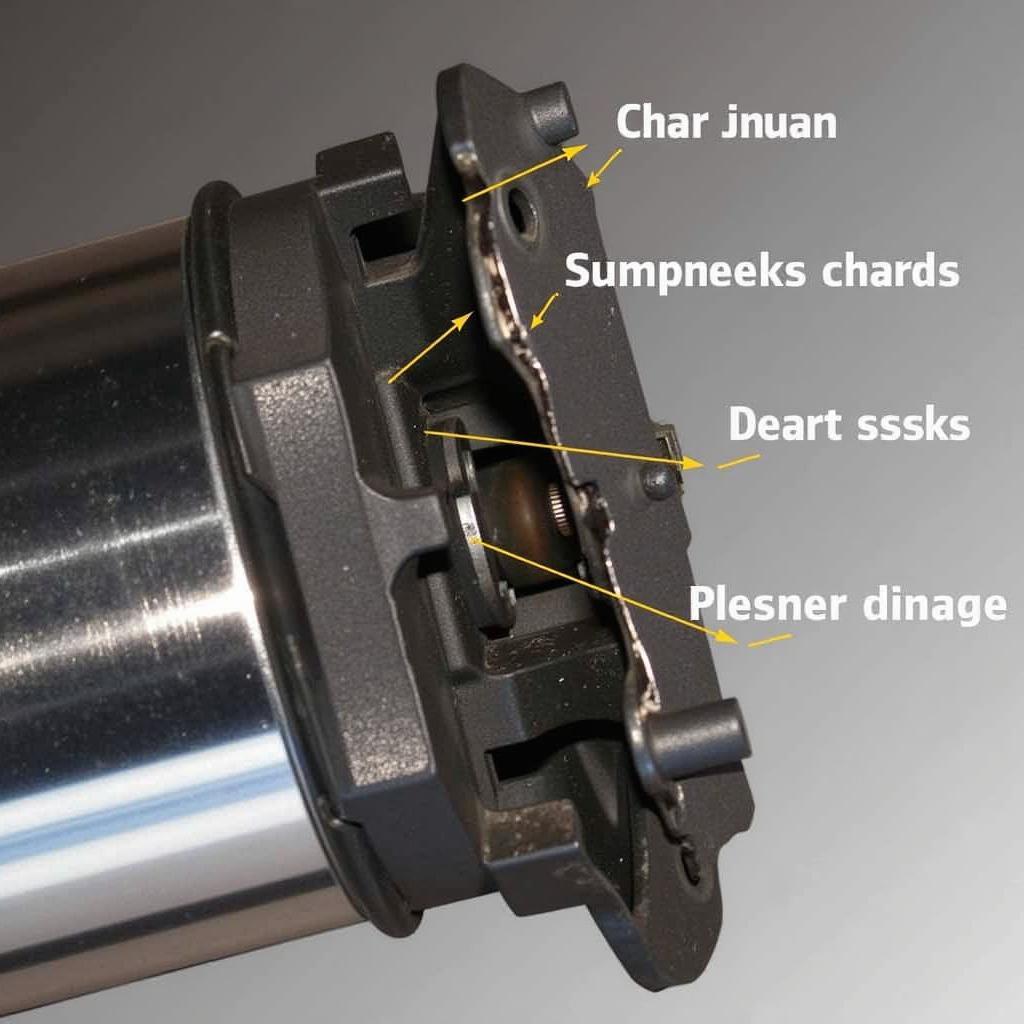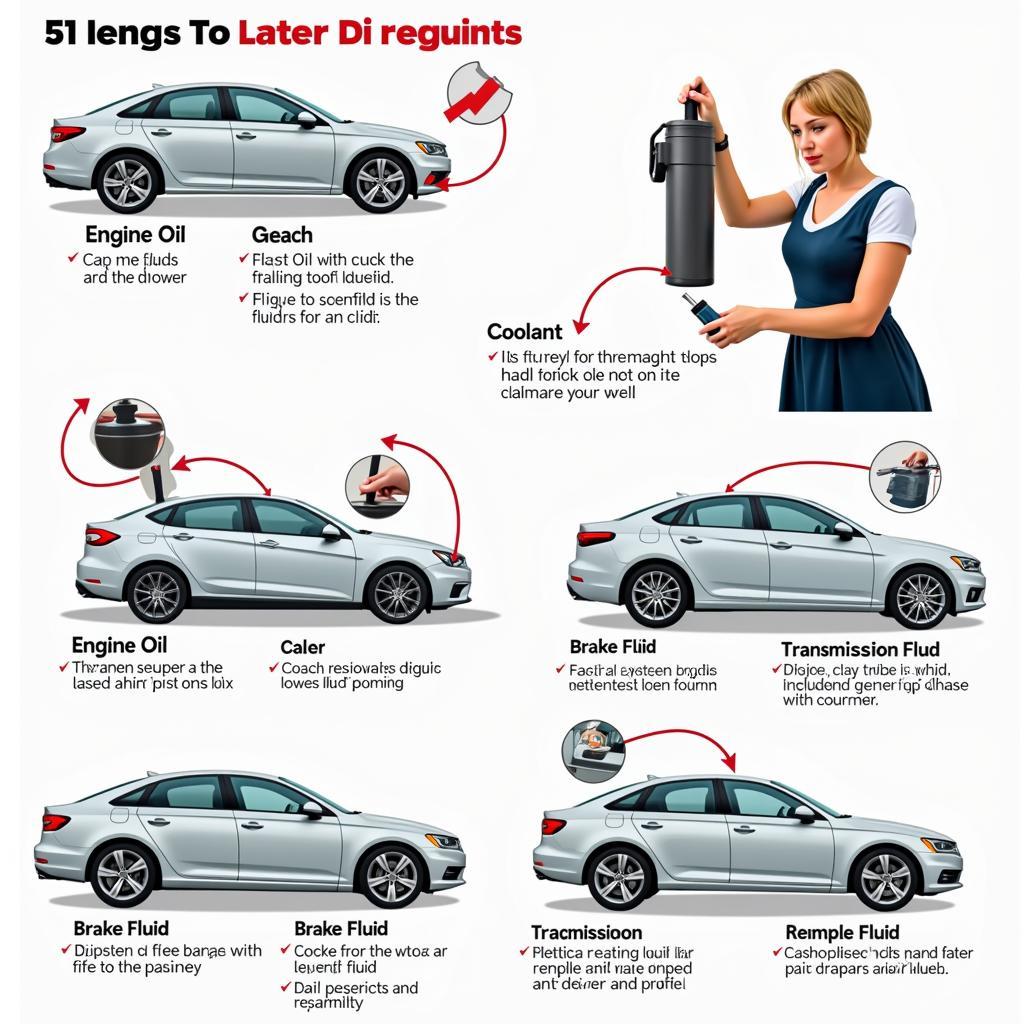Car Coil Problem Symptoms can range from subtle performance hiccups to a complete engine failure. Understanding these symptoms is crucial for timely diagnosis and repair, saving you time, money, and potential roadside headaches. This guide provides a detailed look into the common, and not-so-common, indicators of a failing ignition coil.
 Faulty Ignition Coil Symptoms: Visual representation of a damaged ignition coil with clear indications of wear and tear, cracks, and burn marks.
Faulty Ignition Coil Symptoms: Visual representation of a damaged ignition coil with clear indications of wear and tear, cracks, and burn marks.
A failing ignition coil can manifest in various ways, making it challenging to pinpoint the issue without a proper understanding of the potential symptoms. Do you find your car struggling to start on cold mornings? Or perhaps you’ve noticed a decrease in fuel efficiency? These could be signs of a car coil problem. Let’s delve into the intricacies of these symptoms and what they mean for your vehicle.
Recognizing the Common Car Coil Problem Symptoms
One of the most common car coil problem symptoms is engine misfiring. This occurs when the coil fails to provide the necessary spark, causing the cylinder to misfire. You might notice a rough idle, jerking sensation while driving, or a noticeable loss of power.
- Rough Idle: The engine vibrates excessively while idling, indicating inconsistent combustion within the cylinders.
- Jerking/Stuttering: The car may jerk or stutter during acceleration or at a constant speed, a clear sign of misfires.
- Loss of Power: Reduced engine power and sluggish acceleration are common consequences of a weak or failing coil.
Other frequent car coil problem symptoms include difficulty starting the engine, especially in cold weather, and decreased fuel economy. car ignition coil problems symptoms can be easily mistaken for other issues, making accurate diagnosis essential.
- Hard Starting: A failing coil struggles to provide the strong spark required for ignition, leading to starting difficulties.
- Poor Fuel Economy: Unburnt fuel due to misfires results in reduced fuel efficiency and increased emissions.
Why is My Check Engine Light On?
The dreaded check engine light can illuminate for various reasons, but a faulty ignition coil is a frequent culprit. Modern vehicles use sophisticated onboard diagnostics that can detect misfires and trigger the check engine light. Using an OBD-II scanner can reveal specific trouble codes related to the ignition system, pinpointing the problematic coil. Don’t ignore this warning sign; it’s crucial to address the issue promptly to prevent further damage. trouble shooting car problems can be simplified with a little knowledge and the right tools.
How Do I Test My Ignition Coil?
Testing an ignition coil requires a few basic tools and some caution. One method involves using a multimeter to check the coil’s primary and secondary resistance. Compare the readings to the manufacturer’s specifications to determine if the coil is within the acceptable range. However, it’s important to note that a multimeter test doesn’t always catch intermittent failures. Consulting a qualified mechanic is recommended for a thorough diagnosis.
“Regular maintenance and timely replacement of worn-out components, like ignition coils, can significantly extend the life of your vehicle and prevent costly repairs down the road,” advises John Miller, a seasoned automotive technician with over 20 years of experience.
Beyond the Basics: Less Common Car Coil Problem Symptoms
While the symptoms mentioned above are the most common, there are less frequent indicators of a failing ignition coil. These include backfiring through the exhaust, a noticeable smell of gasoline, and even stalling. car distributor problems can also mimic some of these symptoms, emphasizing the importance of accurate diagnosis.
- Backfiring: A loud popping sound from the exhaust system indicates unburnt fuel igniting in the exhaust manifold, often caused by a weak spark.
- Gasoline Smell: The smell of raw gasoline indicates incomplete combustion, a common symptom of misfires due to a failing coil.
- Stalling: A failing coil can cause the engine to stall unexpectedly, especially during idling or low-speed driving.
“Investing in high-quality ignition coils can prevent many of these issues. Don’t compromise on quality when it comes to vital engine components,” adds Susan Davis, an automotive engineer specializing in ignition systems.
Conclusion
Car coil problem symptoms can be diverse, ranging from minor performance issues to complete engine failure. Recognizing these symptoms early is essential for prompt diagnosis and repair. car known problems often include ignition coil failures, so familiarizing yourself with these symptoms can save you time and money. By understanding the various signs of a failing ignition coil, you can take proactive steps to maintain your vehicle and prevent costly repairs. For any assistance or further queries, feel free to connect with us at AutoTipPro. Our phone number is +1 (641) 206-8880, and our office is located at 500 N St Mary’s St, San Antonio, TX 78205, United States. lincoln town car catalytic converter problems are another common issue we handle.





Leave a Reply